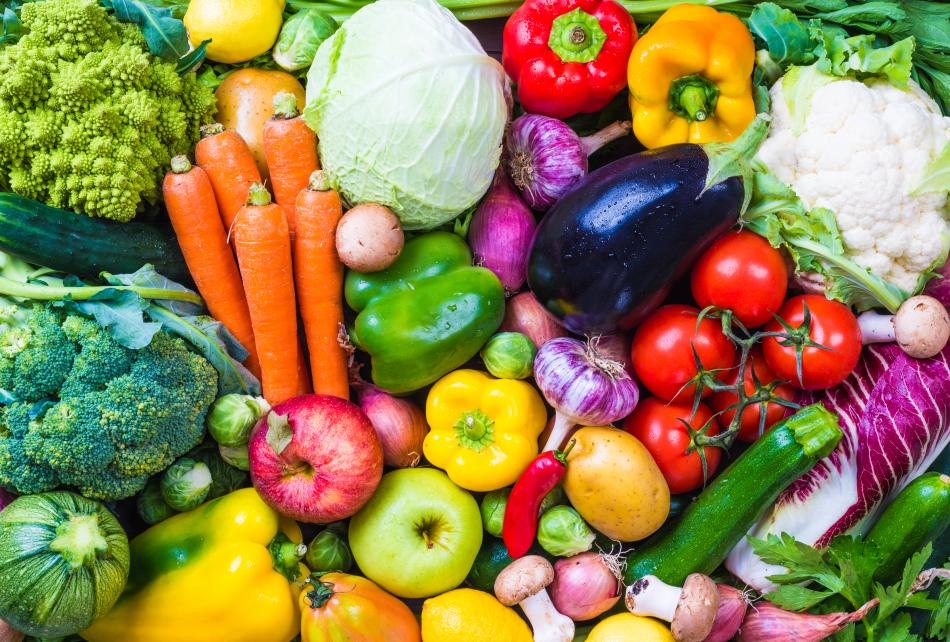A Life Less Sweet
Published in blogs by HealthyMe Digital, 16th January 2020

We are always looking for ways to increase our energy, be more productive and generally get more out of our days – both in our professional and personal lives. We have adjusted our lifestyles - we are exercising more, have stopped smoking, switched to low-fat/no-fat, counted calories and started practising mindfulness. But what if some of these messages we have been receiving are flawed? Dr Aseem Malhotra, having extensively researched the causes of obesity became convinced that the public health messages to reduce fat consumption had led to the increased consumption of sugar and refined carbohydrates. That this was to blame for our flailing energy levels and even more devastatingly the rates of heart disease and obesity.[1] The war on sugar is not new with people like Sarah Wilson leading the charge with her widely recognised book and website ‘I Quit Sugar’ and associated programs.[2] Dr Malhotra says, “I read all the research I could, and concluded that simple lifestyle changes, such as consuming less sugar, were more powerful than any medication doctors can prescribe.”[3]
What if it is that simple – cut down on sugar to regain energy and improve your overall health. But it is not as simple as cutting the sugar from your coffee or refraining from eating lollies and chocolate. You need to pay attention to much more in your diet – the sugar in pasta sauces, breakfast spreads, tinned foods, etc. Dr Malhotra has made this rather easy by devising an easy-to-follow 21 day plan called the Pioppi Diet.[4] The name is taken from a small village in Italy where it was found the locals tended to live longer without contracting diseases such as type 2 diabetes and heart disease. While Dr Malhotra’s central message is to stop fearing fat, stop counting calories and start considering “sugar as public enemy number one”. For the Pioppians, diet is only one part of the overall wellbeing picture. Their lifestyle “is centred around daily movement, lack of stress, slow eating, good quality sleep and an inclusive society.”[5]
How can we convey this message in our workplaces? How can we encourage our employees and colleagues to consider how nutrition directly impacts their energy levels, mental wellbeing and productivity? Wellness in the workplace is not a new phenomenon. With organisations now taking a more vested interest in the wellbeing of their employees by offering free health checks, in-house massages, and guided meditation. And now there is more focus on nutrition and wellbeing – you just need to do a Google search to see the number of articles and government initiatives around nutrition and the impact on workplace productivity. An interesting paper in the British Journal of Health Psychology highlights the extent to which food affects our mood and behaviours. They conducted a study to determine whether food choices influenced the participants daily experiences. And their conclusion was that the more fruits and vegetables people consumed (up to 7 portions) – “the happier, more engaged, and more creative they tended to be”[6]. Promoting strong nutritional sense will have roaring benefits within organisations and the productivity of their employees. Food has a direct impact on our cognitive performance, which is why poor choices at lunch can cause that afternoon slump.[7] More organisations now see and appreciate the impact of personal life on work life and vice versa. Traditional thinking would view wellbeing as an individual’s responsibility outside of the office, in the realm of their personal home life. Bringing a new understanding that perhaps there is no distinction between home and work life, by nurturing both sides has positive benefits across the board. If you are serious about achieving top performance in the workplace, for both you and your employees, making informed and intelligent decisions about food and nutrition is essential.[8]
[1] (Lambert, 2017)
[2] (Wilson, 2017)
[3] (Lambert, 2017)
[4] (Lambert, 2017)
[5] (Lambert, 2017)
[6] (Conner, Brookie, Richardson, & Polak, 2015)
[7] (Friedman, 2014)
[8] (Friedman, 2014)
References
Conner, T. S., Brookie, K. L., Richardson, A. C., & Polak, M. A. (2015, May 20). On carrots and curiosity: eating fruit and vegetables is associated with greater flourishing in daily life. Retrieved from National Center for Biotechnology: https://www.ncbi.nlm.nih.gov/pubmed/25080035
Friedman, R. (2014, October 17). Harvard Business Review. Retrieved from https://hbr.org/2014/10/what-you-eat-affects-your-productivity
Lambert, V. (2017, June 26). Lose weight and live longer: Secrets of the world's healthiest village. Retrieved from Stuff: http://www.stuff.co.nz/life-style/well-good/teach-me/94070845/lose-weigh...
Wilson, S. (2017). I Quit Sugar. Retrieved from I Quit Sugar: https://iquitsugar.com/
Workplace Health. (2017). Retrieved from Nutrition Australia: http://www.nutritionaustralia.org/vic/workplace-health
© Copyright 2018 HealthyMe Digital. All rights reserved. Privacy policy